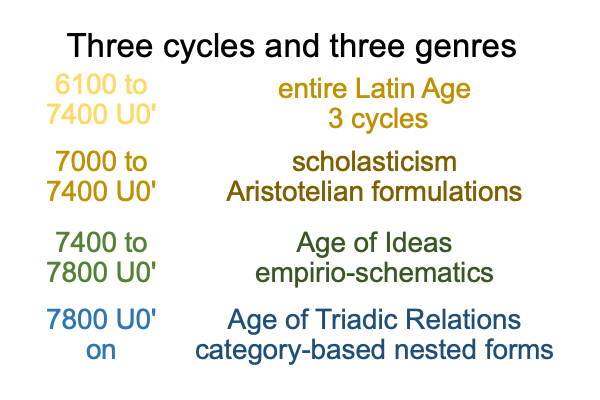0040 James Hoffmeier gives a literary overview of Gen 1-11, before considering genre.
Notably, a break between the primeval and the patriarchal narratives appears precisely at the point when Terah, Abraham’s father, enters the story.
It is almost as if the genre changes.
0041 Have I seen a change in genre before in the book that I am looking at?
Yes, the story of Galileo marks a change of genres, from Aristotelian formulations to empirio-schematics.
Galileo stands at the twilight of the Latin Age, which opens with St. Augustine and continues for twelve hundred years. According to Thomist and semiotician John Deely, the Latin Age is the second age of understanding.
Galileo stands at the dawn of the Age of Ideas, which runs four hundred years to the present. The Age of Ideas is an era of Wissenschaftlich. Analytical and scientific approaches dominate. Now, this third age of understanding draws to a close.
The fourth age of understanding, the Age of Triadic Relations, enters civilizational awareness, with the philosophy of Charles Peirce. Peirce’s philosophy empowers the hypothesis of the first singularity.
0042 Here is a list. For each period, the top item labels the cycle and the bottom item names the genre.

